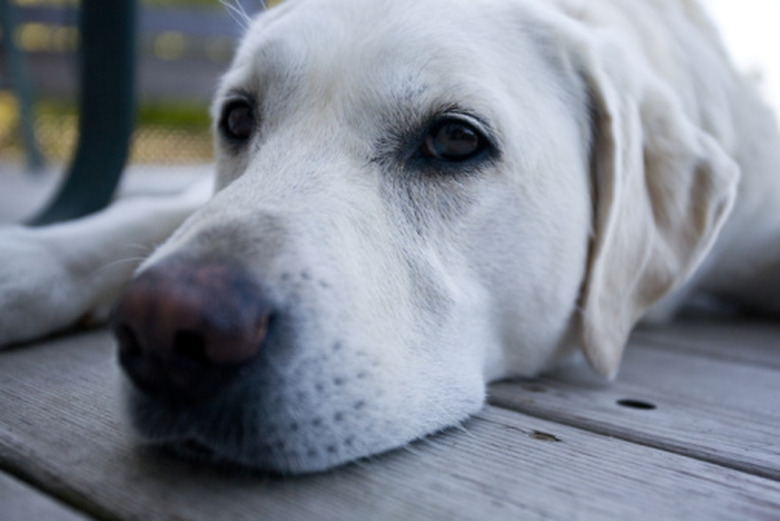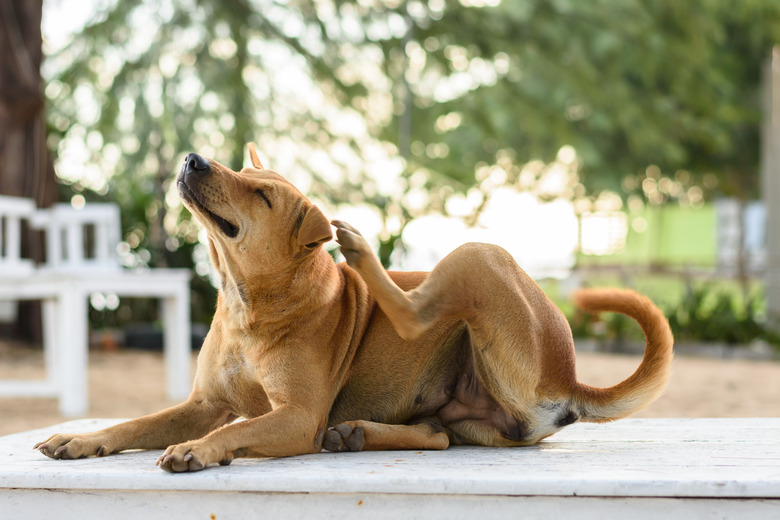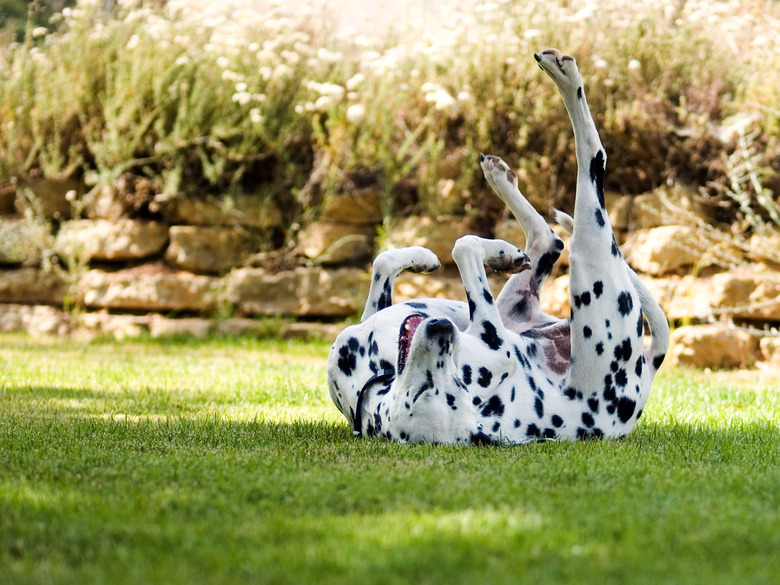How To Treat A Dog Who Has Scratched Himself Too Much
If your dog has scratched her skin raw, it is important to not only treat the wounds and raw skin but also to determine the underlying cause of the itching. Unfortunately, your dog won't understand that she is causing more harm by continuing to scratch, so speak with your vet about itch relief treatment options until the condition causing the itching is under control.
Dog itch relief treatments
Dog itch relief treatments
If your dog is suffering from itching that is causing him to scratch too much, there are a few things you can do to help reduce itching. Before giving your pup any dog itching medication, be sure to consult your vet to make sure it is safe for your dog's condition and that you are administering the correct dose.
Oral or topical steroids are often the most effective option for reducing itching. However, oral steroids must be prescribed by your vet, and they have many potential side effects, such as increased hunger and thirst and decreased adrenal gland function. Topical glucocorticoids have fewer side effects but should not be used if your dog has an infection.
Other medications that may help to control itching include modified cyclosporine and oclacitinib. An antihistamine, such as Benadryl, may help some dogs. Additional treatment depends on the cause of the itching.
Treat raw skin and cuts
Treat raw skin and cuts
If your dog has scratched her skin raw, be sure to treat the wound to prevent infection and keep it from getting worse. If the area is infected, your vet may prescribe an antibiotic or recommend an antibiotic ointment.
If possible, clip the hair from around the raw skin and disinfect the area with an antiseptic such as chlorhexidine. If there is a lot of raw skin and hot spots, bathing your pup with medicated dog shampoo containing chlorhexidine may be better. Gently clean the area daily.
As long as your pup does not continue to scratch, the skin should heal in a week or less. Depending on the location of the hot spot or raw skin, applying a bandage can keep your pup from scratching and licking the area. In other cases, an Elizabethan collar, or cone, may be needed.
Identify and treat the cause
Identify and treat the cause
Identifying the cause of the itching is key to providing lasting dog itch relief. Consult your vet, who can help evaluate your dog's itching and other symptoms to determine the issue and best treatment options. Some common causes of itching in dogs include allergies, pests, and skin infections.
Allergies may be caused by certain ingredients in your pup's diet or by environmental factors, such as pollen, dust, and chemicals. Work with your vet to try to discover the source of the allergy and reduce or eliminate your dog's exposure to the allergen. The bites from a flea can cause flea allergy dermatitis, which is incredibly itchy for your pup. Treat your dog and home for fleas and use a flea preventative to keep the pests from attacking your dog in the future.
Dogs can also get skin infections on their body or in their ears that can be very itchy. Bacterial infections are more common where your dog has already scratched or damaged skin. Yeast infections are most common in the ear and where there are skin folds. Your vet will determine what organism is causing the infection and prescribe the proper medication, ointment, or shampoo.


